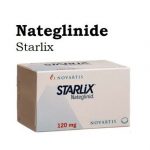
Contents
What Happens if You Drink Kefir Water Every Day?
Kefir water, a fermented, dairy-free drink made from water kefir grains and sugar water, offers numerous health benefits. Regular consumption of kefir water increases antioxidants, boosts immunity, regulates blood sugar, and provides other advantages.
Drinking kefir water daily adds beneficial bacteria to your digestive system, combats inflammation, and improves overall health.
Originating from the region between the Black Sea and Caspian Sea, kefir water has a slight acidic and tangy taste when unflavored.
Kefir grains, which are small, jelly-like, and irregularly shaped, are not actual grains. They combine yeast and healthy bacteria cultures, and are light yellow in color.
What are the benefits of drinking kefir water?
Kefir water offers a variety of health benefits due to its nutrients, probiotics, and anti-inflammatory properties.
Enhances antioxidants. Kefir water provides extra antioxidants to protect cells from free radicals, reducing the risk of cardiovascular, eye, and neurological diseases.
Studies show that kefir’s antioxidants can also inhibit the growth of cancer cells and limit the development of breast, gastrointestinal, blood, lung, and skin tumors.
Regulates blood sugar. Regularly consuming kefir water helps maintain stable blood sugar levels, which is crucial for individuals with diabetes to prevent complications.
Kefir bacteria strains improve glucose absorption by muscle cells, assisting in glucose regulation. Additionally, kefir water improves hemoglobin levels, which reduces the risk of anemia-related kidney complications in individuals with diabetes.
Improves digestive health. Kefir is rich in probiotics such as Lactobacillus and Lactococcus, which can alleviate digestive issues like constipation and irritable bowel syndrome.
Kefir water helps balance the gut microbiota, strengthening the intestinal barrier and reducing inflammation-related digestive diseases.
Boosts the immune system. Adding kefir water to your diet enhances your immune system’s ability to fight harmful bacteria such as E. coli, Listeria, and Salmonella. Kefir water’s anti-viral properties also show promise in combating diseases like influenza and COVID-19.
Studies reveal that kefir water stimulates the immune system’s response to bacteria and viruses while regulating inflammatory cytokines to prevent severe symptoms.
Provides additional nutrients. Kefir water contains essential vitamins and minerals like B vitamins, Vitamin C, calcium, and magnesium.
Vitamin B1 deficiency is linked to heart failure, diabetes, and Alzheimer’s Disease. Vitamins B2 and B5 contribute to energy production, while Vitamin C aids in wound healing and antioxidant regeneration.
Calcium strengthens bones and prevents osteoporosis, while magnesium supports muscle, nerve, and heart function.
Reduces the risk of chronic diseases. Kefir water shows potential in treating obesity by reducing fat and carbohydrate absorption. It can also lower cholesterol levels and help maintain a healthy blood pressure.
Kefir water’s anti-inflammatory properties may alleviate symptoms of asthma and allergies, as studies have shown improved immune system function with kefir consumption.
Who should consume kefir water?
Kefir water is generally safe for most individuals as a low-cost nutritional supplement.
If you want to decrease your sugar intake, you can replace soda, fruit juice, or sweetened drinks with kefir water.
Kefir water is an excellent probiotic option for vegans and individuals with dairy allergies, sensitivities, or personal beliefs as it provides similar benefits to milk-fermented kefir products.
Are there any side effects of kefir water?
Kefir water may cause mild digestive symptoms like bloating, constipation, gas, or nausea due to its probiotic content.
Individuals with weakened immune systems should consult a doctor before consuming kefir water as certain studies have linked probiotics to infection risks in such individuals.
Kefir water may contain a small amount of alcohol from the fermentation process, making it unsuitable for children and individuals sensitive to alcohol.
If you have diabetes or are trying to lower your sugar intake, limit the consumption of kefir water flavored with fruit juice, as it contains added sugar.
How do you make kefir water?
To make kefir water, you will need water kefir grains, water, sugar, a 4-cup jar with a lid, and a strainer. Follow these basic instructions:
- Combine ½ cup of hot water with ¼ cup of sugar in a jar and stir until the sugar dissolves.
- Add 3 cups of room-temperature water and the water kefir grains to the jar.
- Cover the jar with a loose lid or a cloth secured with a rubber band.
- Place the jar in a warm area with a temperature range of 68-85 °F and allow it to ferment for 24-48 hours.
- Strain the liquid through a plastic or stainless-steel mesh strainer, separating the kefir water from the kefir grains (which can be reused).
- You can add flavorings of your choice such as fruit juice, vegetable juice, fresh fruit, or vanilla extract.
Kefir water can be left at room temperature for 2-3 days or stored in the refrigerator for 2-3 weeks.
Is kefir water suitable for you?
Regularly drinking kefir water can provide your body with anti-inflammatory and antioxidant nutrients that may improve your health. However, due to potential side effects from probiotics, it is advisable to consult with your doctor before incorporating kefir water into your diet.
QUESTION
AHA Journals, Hypertension: "Serum Aldosterone Concentration, Blood Pressure, and Coronary Artery Calcium."
Centers for Disease Control and Prevention: "Manage Blood Sugar."
Harvard Health Publishing: "Understanding antioxidants."
National Cancer Institute: "Antioxidants and Cancer Prevention."
National Center for Complementary and Integrative Health: "Probiotics: What You Need To Know."
National Institutes of Health: "Calcium;" "Magnesium;" "Pantothenic Acid;" "Probiotics;" "Riboflavin;" "Thiamin;" "Vitamin C."
PubMed Central, BMC Complementary Medicine and Therapies: "Metagenomic and Phytochemical analyses of kefir water and its subchronic toxicity study in BALB/c mice."
PubMed Central, Cureus: "The Effects of Kefir and Kefir Components on Immune and Metabolic Physiology in Pre-Clinical Studies. A Narrative Review."
PubMed Central, "Elsevier Public Health Emergency Collection: "Kefir" A protective dietary supplementation against viral infection."
PubMed Central, Foods: "Kefir and Its Biological Activities."
PubMed Central, Frontiers in Nutrition: "Kefir and Intestinal Microbiota Modulation: Implications in Human Health."
PubMed Central, International Journal of Environmental Research and Public Health: "The Gut Microbiota and Inflammation: An Overview."
PubMed Central, Journal of Food Science and Technology: "Carbonated fermented dairy drink – effect on quality and shelf life;" "The importance of antioxidants and place in today’s scientific technological studies."
PubMed Central, Nutrients: "Distinct Impact of Natural Sugars from Fruit Juices and Added Sugars on Caloric Intake, Body Weight, Glycaemia, Oxidative Stress, and Glycation in Diabetic Rats;" "Side Effects Associated with Probiotic Use in Adult Patients with Inflammatory Bowel Disease: A Systemic Review and Meta-Analysis of Randomized Controlled Trials;" "The Many Faces of Kefir Fermented Dairy Products: Quality Characteristics, Flavour Chemistry, Nutritional Value, Health Benefits, and Safety;" "Water Kefir and Derived Pasteurized Beverages Modulate Gut Microbiota, Intestinal Permeability and Cytokine Production In Vitro."
PubMed Central, The Korean Journal of Internal Medicine: "Low Hemoglobin Concentration Is Associated with Several Diabetic Profiles."
PubMed.gov, Medical Oncology: "Kefir: a powerful probiotics with anticancer properties."


